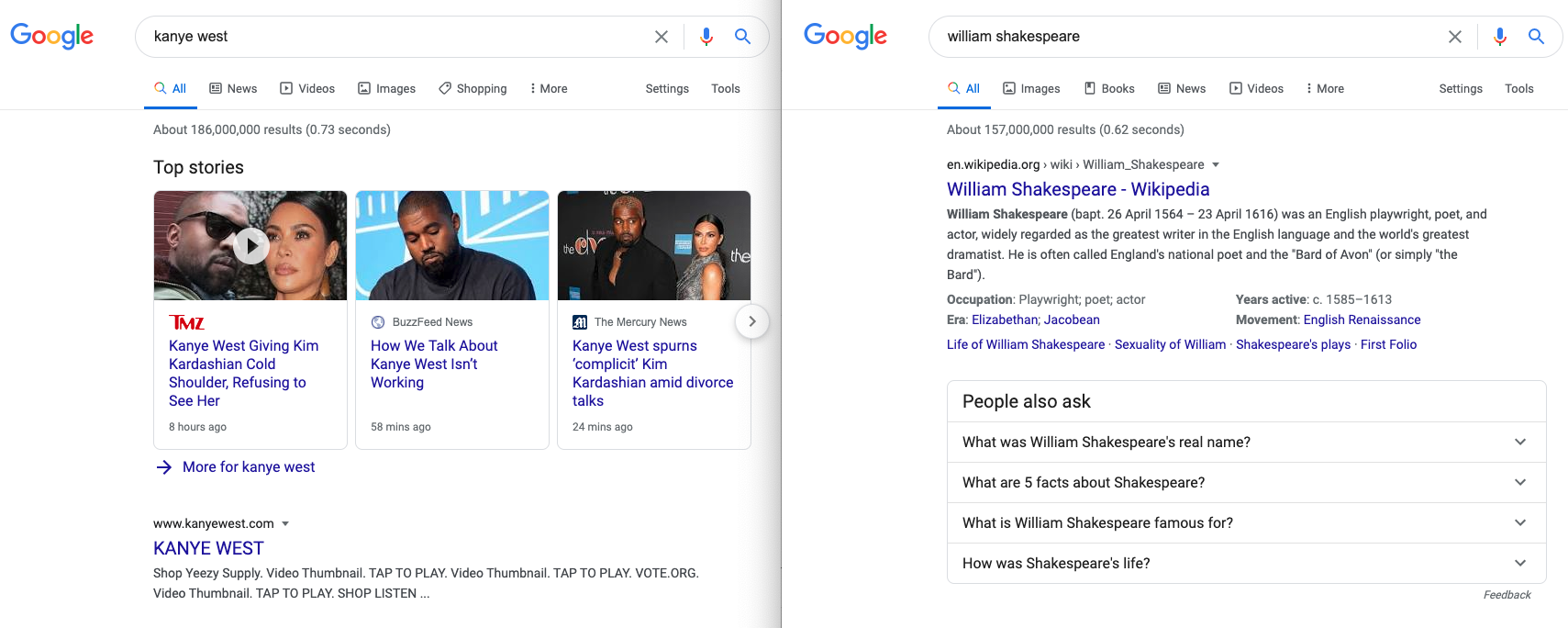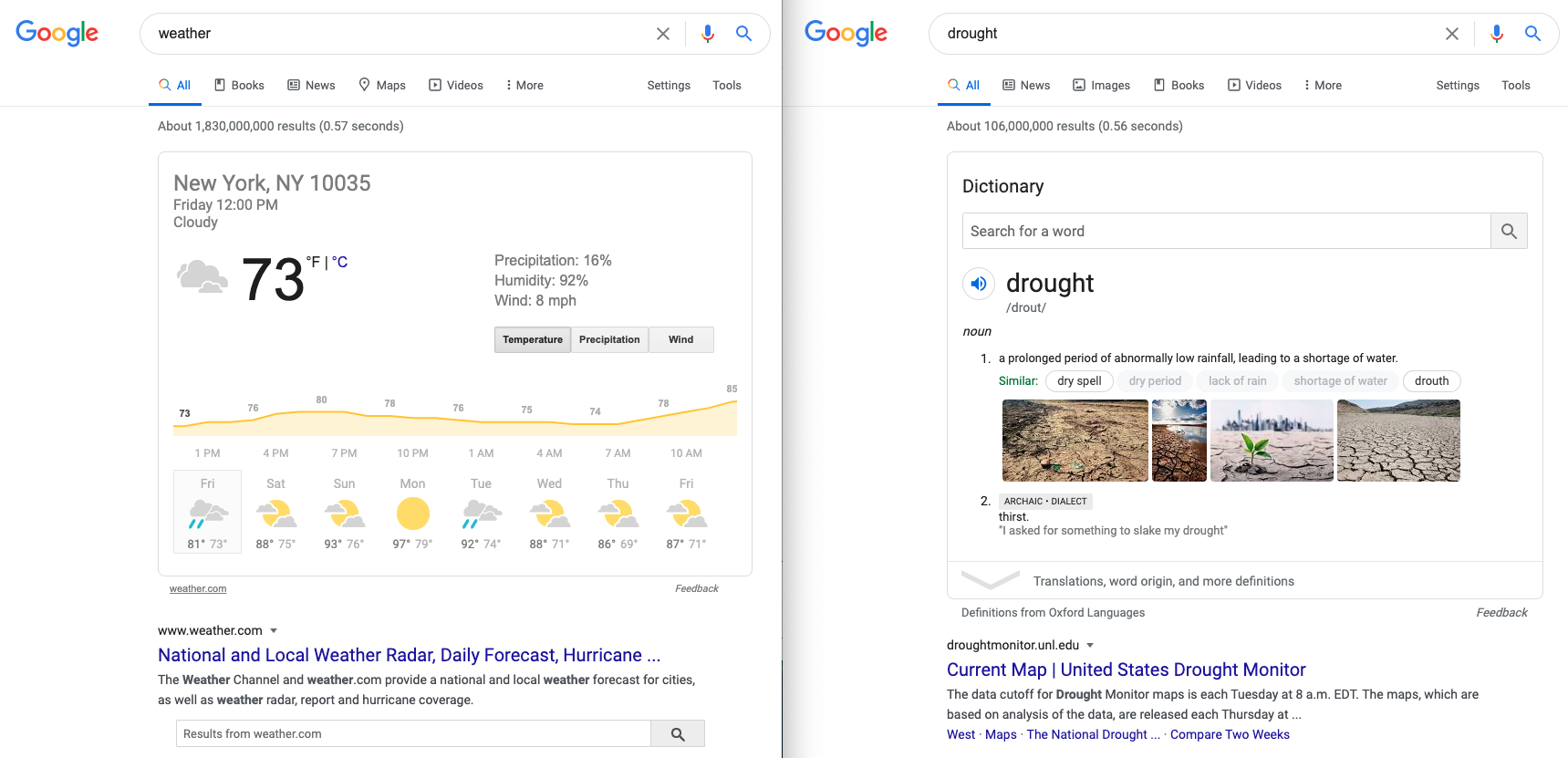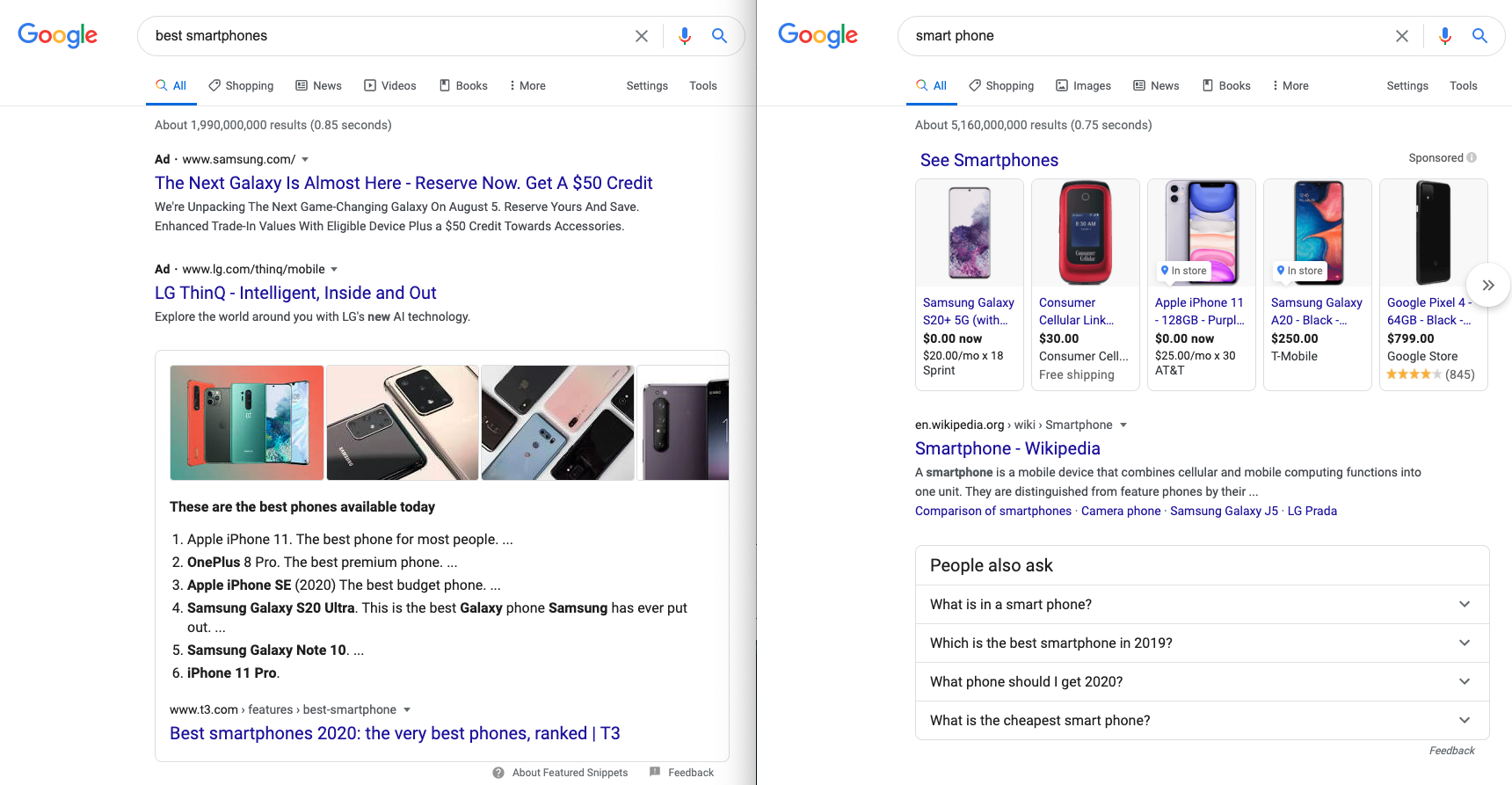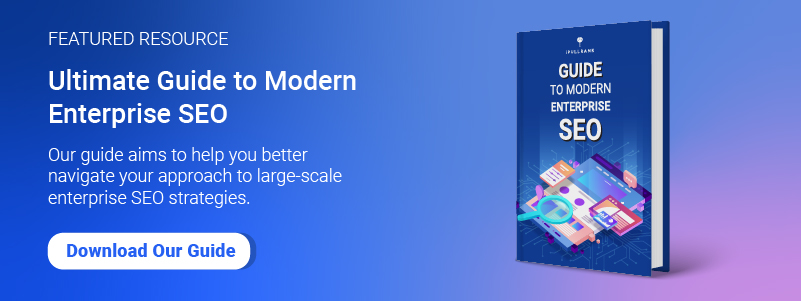Content quality and optimization are hugely important for ranking well on Search Engine Results Pages (SERPs), but “freshness” may also be a factor for some types of content. To find out whether fresh content will influence your rankings on Google, you need to understand what it is, how it works, and whether it applies to your content or not.
TL;DR
The freshness of your content can impact your rankings on Google, but only if the end-user needs fresh content to find value.
What is Fresh Content?
Fresh content essentially refers to new or timely content. It’s not my favorite term, but it’s a term SEOs and content strategists get asked about a lot. Content “freshness” is considered to be an important ranking factor for specific types of content. Google uses QDF to score freshness and determine whether or not content is relevant for specific search queries.
What is QDF?
Query Deserves Freshness, or QDF, is how Google decides whether freshness impacts your rankings or not. In other words, not all queries deserve freshness as a ranking factor.
For people querying topics that require up-to-date information (like concert dates or the best places to eat in my area), the information needs to be timely to be relevant. Remember, Google is all about the user – if it doesn’t make sense to the searcher, it doesn’t make sense to rank.
If the query is not time-sensitive, in other words, if it doesn’t matter whether the content was created in 2002 or 2020, QDF does not have a major influence on ranking. For example, “Schrödinger’s Cat” is not a topic that needs to be updated monthly to still be relevant to the user’s search query.
How Does Google Rank Freshness?
Like any of Google’s ranking factors, we’re never going to be completely sure how they work. And this is intentional – Google doesn’t want you to cheat in order to rank. But according to patents filed by Google, we’re able to make some assumptions on how Google ranks freshness:
- Inception Date scores freshness by the date Google first indexed or discovered a link to the page.
- Core Content Changes looks at the importance of the content that was changed.
- Percentage of Change bases freshness on how much of the content was updated.
- Frequency of Change examines how often the content gets changed.
- Amount of New Content scores freshness based on how much new content gets uploaded.
- Link Growth Rate identifies recent backlink activity.
- Link Freshness is passed on when pages linking to yours are also considered fresh.
- Traffic and Engagement Signals use performance metrics to indicate freshness over older pages.
- Anchor Text Changes can negatively impact rankings when freshness updates aren’t reflected in the anchor text.
- Freshness vs Value weighs the value of the content against freshness to rank the most appropriate page for a search query.
How Does QDF Impact Content?
According to Google, QDF only relates to specific types of content. These types include:
- Recent events or hot topics
- Regularly recurring events
- Frequent updates
Recent events or hot topics refer to trending or newsworthy content. For topical content like news updates or trending gossip, content that is recent is more relevant to the user than content related to the topic in general.

Regularly recurring events cover content that frequently updates as a matter of course. Content related to sports results, weather updates, or annual conferences is known to require timely updates in order to be relevant to the search query.

Frequent updates refer to informational content that needs to be updated often in order to be useful but isn’t topical or regularly recurring. Product research and review queries are good examples of this type of content. Searchers are more likely to want content that includes the most recent information available.

If your content ticks one or more of these boxes, it’s very likely freshness will be an important factor in your rankings. If not, freshness could still be used as an opportunity to enhance and rank evergreen content.
What is Evergreen Content?
Evergreen content is content that’s always relevant and won’t go out of date – it’s content that’s timeless. This isn’t to say this type of content won’t need regular updating or refreshing in order to stay that way.
Examples of evergreen content include your important landing pages, like about us or services pages. This is a page that doesn’t need updating regularly in order to stay relevant, but if there is new information to share and it isn’t reflected in the content, your pages are suddenly irrelevant.
Besides foundational landing pages, brands can use evergreen content to establish themselves as an authority on certain topics. A COVID-19 resource center, for example, is a page that can be updated as and when new information is available. Evergreen content that evolves with regular updates can be hugely beneficial for generating backlinks, improving rankings, and establishing authority.
New vs Updated Content
So, when should you upload new content, and when should you simply update old content? You’re gonna love the answer: It depends. (This is SEO – what were you expecting?)
When to Add New Content
New content is generally the best option when you have something new to publish. If you’ve identified a gap you need to fill, creating strategic content around relevant topics is a great way to improve the number of keywords you rank for.
How Often Should I Add New Content?
The best way to find an answer to your question is to consider your audience. If you have content worth engaging with daily, provide new content daily. If you are creating new content just to create new content, chances are it won’t be worth the investment.
Why focus on quantity when, clearly, content is a quality game.
Google doesn’t just consider freshness, it considers a host of other important signals and factors to determine ranking. Just because it’s new, doesn’t mean it’s relevant. Deciding on the frequency of your content will largely depend on your audience, your brand, your product, and how often you have content of value to provide.
Let’s put it this way. In 2020, WordPress users post 70 million new posts every month. According to a Botify Study, 94% of blog posts get no links. So why focus on quantity when, clearly, content is a quality game?
Frequency does affect how often your site gets crawled, according to Google’s Caffeine Update. If you update your site once a year, Google’s not going to waste its crawl budget crawling your site daily. If you update regularly, it makes sense to crawl your website regularly. The more regularly you get crawled, the more opportunity you have to rank, and the more impact updates and changes will have on your ranking.
When to Update Content
If you have content that already covers a specific topic, it might be better to update existing content rather than try to get brand-new pages to rank and generate links. Keep the QDF factors in mind when doing this and try to update content substantially rather than just changing a few sentences here and there. You’ll also want to make sure your content is still accurate to the original topic. Changing your topic from cars to planes will mean existing anchor text linking to your content will suddenly become less relevant.
On the other hand, if you have a piece of content that you publish regularly, it’s sometimes worthwhile posting a new page rather than updating an existing one.
For example, if you post your favorite cat videos every year, updating 2019’s list with 2020’s may be more harmful than helpful. Yes, 2020’s page is going to need to start building links and climbing ranks, but having a catalog of your favorite videos for every year shows your authority on the topic and can improve your site’s overall ranking.
How Often Should I Update Content?
You should update content as regularly as it needs to be updated. If the information you have in your content changes daily, that’s how often you should update it. If it only changes yearly – or never– that’s how often you need to update it in order to stay relevant.
But what if you want to update content? As a content strategist, I’m always of the opinion you should continuously audit, analyse, and optimize your website content. There’s always room for improvement, and your rankings can change daily.
Auditing your website content involves taking a deep look at what you have, what audiences your content serves, how everything is performing, and how to improve it. This generally results in three helpful results:
- What new content is needed
- What old content needs updating
- What old content needs deleting
Updating your content can help ensure you stay relevant, improve your internal linking structure, increase the number of keywords you rank for, and impact page rankings.
So… What Should I Do, Exactly?
What you should always do when considering any strategy or approach to content: consider your end user. Content is most impactful when you treat it like a product or service rather than a tool for driving results.
- If content is too outdated to be useful to whoever’s searching for it, update it.
- If content is no longer relevant to be useful to whoever’s searching for it, create new content.
- If it needs no update to be useful to whoever’s searching for it, don’t change it.
It really is that simple: Content should be useful. Optimize content to fulfill the end user’s needs and the rankings will follow.
Get Help Creating Fresh Content
Content and SEO go hand in hand when it comes to organic search traffic. Without content, there’s nothing to optimize for search, and without SEO, there’s no way you’re going to rank on SERPs.
For help creating strategic content that impacts rankings, get in touch with one of our Account Executives or sign up for our newsletter. You can also read about how to approach content strategy to benefit your business.

- How Fresh Content Influences Google Rankings - July 27, 2020
- 6 Ways to Build a Quality Email List - May 29, 2020





